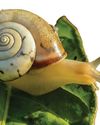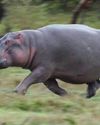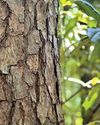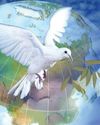
Some orcas would follow their prey, herring, to the Norwegian coast in winter.
Skjervøy, the base for the trip, is at 70°N, north of the Arctic Circle. In the six days that I spent on the boat in or near Skjervøy, the daily daylight hours dramatically decreased from two and a half hours to zero. There would be no sunrise from my last day in Skjervøy for another 51 days. Most of our water activities would be conducted in twilight. I spotted the sun exactly once while at sea.
Nine guests, including myself, boarded the M/S Mårøy (pronounced “maw-ray“), our transportation and residence for the trip. I figured out my gear for cold weather snorkelling on the first night. Woollen underclothing plus socks would cover most of the body. Over this would go an additional onesie. I would put on a waterproof drysuit, which would trap an insulating pocket of air next to the body, over these. The holes in the drysuit, for my palms and head, had tight elastic bands to keep them sealed next to my skin. Finally, gloves and hoods would cover my palms and head.
On the first morning, the Mårøy set off from Skjervøy. The seascape and the skies were the most colourful that I had ever seen. From the horizon, the sky lit up in rainbow colours. Mountains rose around us, lit in a gentle glow. Someone spotted the first tall, black dorsal fin of an orca rising above the water, along with a spray of water as the animal exhaled. Soon enough, more orcas became visible. The Mårøy travellers kitted up and boarded the dinghy Gyda. We would sit on the Gyda facing each other inwards.
This story is from the {{IssueName}} edition of {{MagazineName}}.
Start your 7-day Magzter GOLD free trial to access thousands of curated premium stories, and 9,000+ magazines and newspapers.
Already a subscriber ? Sign In
This story is from the {{IssueName}} edition of {{MagazineName}}.
Start your 7-day Magzter GOLD free trial to access thousands of curated premium stories, and 9,000+ magazines and newspapers.
Already a subscriber? Sign In

STICKING OUT YOUR NECK!
Maybe it's having the twins, my grandsons from New York, back home again, that reminded me of a conversation I had with them a couple of monsoons ago: \"What's that?\" asked one of them pointing to a huge shell on the ground.

Hippos can get airborne while running fast
Hippos weigh up to two tonnes, but these bulky creatures can go airborne for a period of time.

Tree bark plays a vital role in removing methane from the atmosphere
Trees are known for removing carbon dioxide from the atmosphere, thus benefiting the climate. New research shows that they offer one more benefit.

Lunar caves could shelter astronauts on the moon
Scientists have found an underground cave on the moon not far from where Neil Armstrong and Buzz Aldrin landed 55 years ago.

Manasi Joshi
The Para-Badminton World Champion

International Day of Peace
In Search of Non-violence and Cease-fire

Non-Violent Communication
How to cope with conflict situations

FR ALOYSIUS G. REGO
A short-statured bearded figure glancing through a pair of spectacles, cane in hand, and head swinging with every step, was the most feared figure in the galleries of our school, St. Joseph's Collegiate, Allahabad.

The Architects of the Future
As we celebrate Teachers' Day on 5 September, students from St Charles School, Santacruz East, Mumbai, have come together to share their thoughts and perspectives on the challenges that teachers face in today's rapidly-changing educational landscape.

JUNG & KOOK
With music, stories and news of K-pop all over the place, on Instagram, Twitter, Thread and other social media platforms, and dozens of boy and girl bands emerging from South Korea, believe me when I say that K-pop is irresistible.